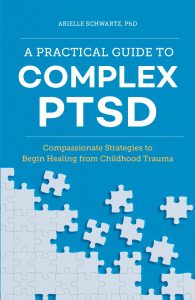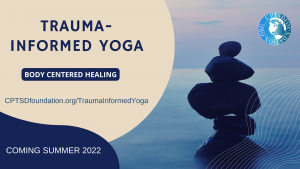Anger and grief are two strong emotions that often accompany one another. All humans feel anger and grief, but survivors of childhood trauma seem to experience it throughout their adult lives. If left untreated, such strong emotions, if left unexpressed, endanger one’s health and relationships. Repressed anger is a hallmark of complex post-traumatic stress disorder and many other emotional problems.
In this article, we shall explore together grief and anger and how we must release and feel them before reaching acceptance.
What is Grief?
 Grief is a strong emotion triggered by sadness over a loss, such as the death of someone you love or a lost childhood. Grief also accompanies receiving a diagnosis such as terminal cancer.
Grief is a strong emotion triggered by sadness over a loss, such as the death of someone you love or a lost childhood. Grief also accompanies receiving a diagnosis such as terminal cancer.
People experiencing grief may feel numb and removed from their daily life. They may feel overwhelmed and unable to carry on with their lives, such as doing their daily chores, and feel a deep sense of loss.
Grief is a universal yet personal experience and a natural reaction to loss. One cannot escape grief as sooner or later; you will have a death in your family that will send your mind reeling.
Grief follows a predictable course called the five stages of grief that, although listed linearly, do not always conform to that list as people move in and out of each stage.
The Stages of Grief
As we have discussed, there are five stages of grief, as identified by Elisabeth Kübler-Ross. The stages are:
- Denial
- Anger
- Bargaining
- Depression
- Acceptance
Denial. Denial helps us to survive a loss we have experienced. During this stage, you are in a state of shock, and you may feel overwhelmed, and the world seems meaningless. You enter a state of shock and go numb. You also feel you have no sense of security and wonder how you can go on after experiencing or reliving loss. Denial is helpful in that it is nature’s way of allowing you to experience only as much as you can handle. During denial, you ask yourself questions and, in doing so, are unwittingly beginning the healing process.
Anger. Anger is not only the topic of this piece but also a necessary stage in the healing process. It is essential to feel and safely express your anger after a loss, even though it seems the anger will never go away. If you cannot experience your anger healthily, you will build up anger as it will not go away if not expressed. You may always feel some angst about what has happened, but if you can feel the anger and work through it, the anger will not become a problem that affects you physically and mentally.
Bargaining. In this stage, we become lost in the “if only” or “what ifs” as we question what has happened to us. We want our loved ones to come back or our past life to change. Sometimes we feel guilty that we have survived or are grieving over what occurred. Often, the thought of “if only” causes us to feel we should have done something to change the outcome. Perhaps we should have turned left instead of right in our life. We try to negotiate with god or do anything to deal with the pain.
Depression. After going through the bargaining stage, we find ourselves living in the present without our loved ones or facing our past. We feel empty, and grief becomes deeper than we ever imagined. We feel we will never be happy in this state, an appropriate response after a significant loss. Often those in this stage feel they are emersed in feelings of intense sadness and wondering why we should go on. Depression may be thought of as something you should be ashamed of and that you should be able to snap yourself out of, but the truth is that not experiencing depression after a loss would be unnatural. If you need help, please reach out to a mental health professional, especially if you experience suicidal thoughts.
Acceptance. People often confuse acceptance with the thought that you are now alright with what you have experienced. Most people never feel okay with the loss they have experienced and accept the reality that the past cannot be changed. You learn to live with your new reality and learn to live with the knowledge we have uncovered or without your loved one. During this healing stage, you may finally have more good days than bad and begin planning for the future. You begin to live after the five stages of grief.
People think that the stages of grief will last months because they forget that it all depends on the needs of the individual. For some, it only takes minutes or hours for each stage as you go in and out of the stages, but the grief process is healing and necessary for a healthy mind and body.
Anger and Grief
 You may have noticed that one of the stages of grief is anger. If you are a survivor of childhood trauma, you naturally hold anger or even rage close to your heart. It is tough to reconcile what happened in your past once you understand how what occurred has changed your life forever.
You may have noticed that one of the stages of grief is anger. If you are a survivor of childhood trauma, you naturally hold anger or even rage close to your heart. It is tough to reconcile what happened in your past once you understand how what occurred has changed your life forever.
Anger is an emotion that all humans share and is a healthy barometer that tells you there is a need you have not met or that an issue needs to be dealt with.
When we begin and continue to work through the anger we feel from trauma; we experience many emotions, including:
- Impatience
- Frustration
- Rage
- Irritability
- Resentment
- Loss of control
- Cynicism
- Pessimism
Your thinking, during the anger stage of grief, turn to thoughts such as “this isn’t fair,” “why is this happening to me,” and “Am I to blame for this?” You may feel that you want revenge on those who hurt you. While entertaining these thoughts, it is critical not to act on them.
Coping During the Anger Stage of Grief
At best, dealing with the anger, you feel when dealing with childhood trauma is difficult. The drama that happens while coping with anger is intense and justified. After all, what happened to you was horrific, and you have a reason to be angry because your life has been deeply affected.
You can do some things to help you with the anger you are feeling after trauma.
- Allow yourself to feel angry. Find a safe place with a supportive person and allow yourself to cry, feel, and think about what happened to you.
- Recognize your feelings other than anger. Feelings of being overwhelmed and sad are often masked as irritability or anger. It is vital to identify the trauma you experienced and may require the aid of a therapist.
- Do not ignore how you are feeling. Suppressing your anger causes them to emerge in other less desirable ways. You may externalize anger toward others or turn it inward, where it becomes depression. Allow yourself to experience anger before it escalates to aggression against yourself or others.
- Find ways to express how you are feeling. If you cannot verbalize your feelings, try using art, poetry, or other outlets to express your anger.
Once anger is safely expressed, you will find that you can accept what happened to you as a child. Note, I did not say you would like or accept the behaviors of those who harmed you; I did mean that the abuse of long ago will begin to return to the past where it belongs and not hamper you today.
Ending Our Time Together
Anger and grief are normal and natural emotions to feel after childhood trauma. You feel anger for what happened to you and grief for the childhood you were not allowed to have.
Don’t forget that during the healing process, you must take good care of yourself by permitting yourself to weep. Your tears are a vital tool for healing as they will wash away the remnants of the past, allowing you to move into a better future.
“Healing takes courage, and we all have courage, even if we have to dig a little to find it.” – Tori Amos
“Feelings are much like waves, we can’t stop them from coming but we can choose which ones to surf.” – Jonatan Martensson

Are you a therapist who treats CPTSD? Please consider dropping us a line to add you to our growing list of providers. You would get aid in finding clients and help someone find the peace they deserve. Go to the contact us page and send a note; our staff will respond quickly.
Shortly, CPTSD Foundation will have compiled a list of providers treating complex post-traumatic stress disorder. When it becomes available, we will put it on our website www.CPTSDFoundation.org.
Visit us and sign up for our weekly newsletter to help inform you about treatment options and much more for complex post-traumatic stress disorder.
The Healing Book Club

As of May 7th, 2022, the current book will be – “A Practical Guide to Complex PTSD: Compassionate Strategies to Begin Healing from Childhood Trauma.”
by Dr. Arielle Schwartz.
Here is an Excerpt –
Repetitive trauma during childhood can impact your emotional development, creating a ripple effect that carries into adulthood. Complex post-traumatic stress disorder (C-PTSD) is a physical and psychological response to these repeated traumatic events. A Practical Guide to Complex PTSD contains research-based strategies, tools, and support for individuals working to heal from their childhood trauma. You don’t have to be a prisoner of your past.
Learn the skills necessary to improve your physical and mental health with practical strategies taken from the most effective therapeutic methods, including cognitive-behavioral therapy (CBT), dialectical behavioral therapy (DBT), eye movement desensitization, and reprocessing (EMDR), and somatic psychology. When appropriately addressed, the wounds of your past no longer need to interfere with your ability to live a meaningful and satisfying life.
This book includes:
- Understand C-PTSD—Get an in-depth explanation of complex PTSD, including its symptoms, its treatment through various therapies, and more.
- Address the symptoms—Discover evidence-based strategies for healing the symptoms of complex PTSD, like avoidance, depression, emotional dysregulation, and hopelessness.
- Real stories—Relate to others’ experiences with complex PTSD with multiple real-life examples in each chapter.
Start letting go of the pain from your past—A Practical Guide to Complex PTSD can help show you how.
If you or a loved one live in the despair and isolation of complex post-traumatic stress disorder, please come to us for help. CPTSD Foundation offers a wide range of services, including:
- Daily Calls
- The Healing Book Club
- Support Groups
- Our Blog
- The Trauma-Informed Newsletter
- Daily Encouragement Texts
All our services are reasonably priced, and some are even free. So, sign-up to gain more insight into how complex post-traumatic stress disorder is altering your life and how you can overcome it; we will be glad to help you. If you cannot afford to pay, go to www.cptsdfoundation.org/scholarship to apply for aid. We only wish to serve you.

Mindfulness, Prayer, and Meditation Circle
Meditation can be an integral part of healing from trauma. Our 9-week self-study video course helps you integrate this fantastic grounding, centering, and focus method. Join the Mindfulness, Prayer, and Meditation Circle today!

A new Trauma-Informed Yoga program is coming in the Summer of 2022! Check out our information page about this highly requested new program! #yoga #traumainformed #cptsd #mentalhealth #recovery #wellness https://cptsdfoundation.org/traumainformedyoga/

My name is Shirley Davis and I am a freelance writer with over 40-years- experience writing short stories and poetry. Living as I do among the corn and bean fields of Illinois (USA), working from home using the Internet has become the best way to communicate with the world. My interests are wide and varied. I love any kind of science and read several research papers per week to satisfy my curiosity. I have earned an Associate Degree in Psychology and enjoy writing books on the subjects that most interest me.



